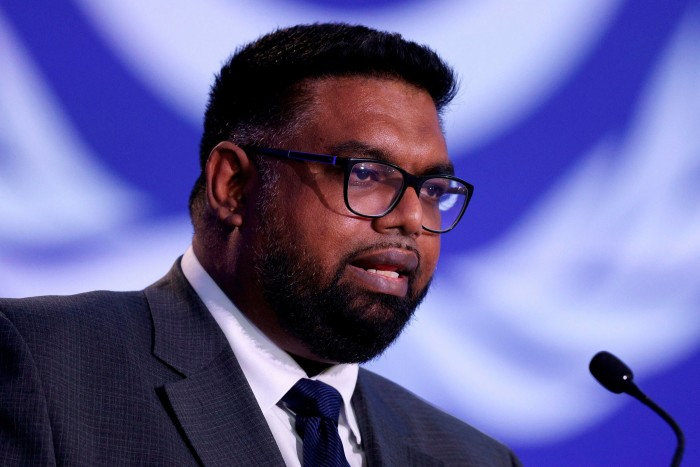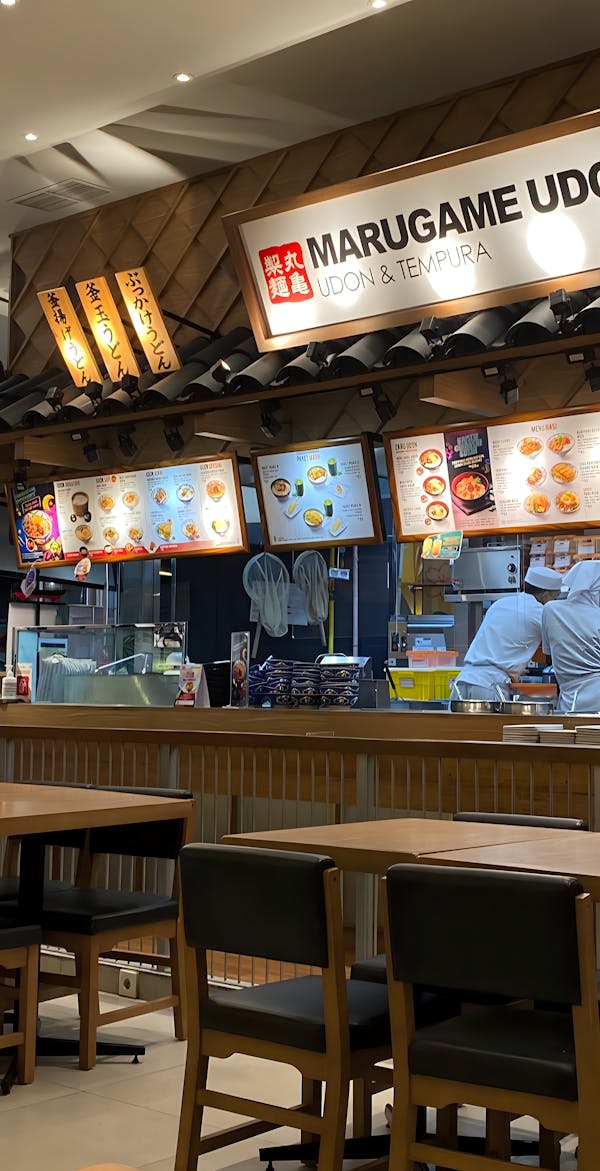Guyana aims to avoid oil curse by spending on health and education
[ad_1]
The president of Guyana, the world’s quickest-developing overall economy, is inviting buyers to back his ambitious vision to remodel the little South American region into a regional health and fitness, training and transportation hub with the help of burgeoning oil wealth.
“We’re investing tremendously in healthcare. and we’re investing closely in education”, President Irfaan Ali, 42, instructed the Financial Situations in an job interview while checking out London previous week to look for financial commitment.
“But not only are we investing in healthcare and education to fulfil the needs of Guyanese, we’re investing in healthcare and education and learning as critical foreign forex earners of the future . . . so Guyana can turn out to be a overall health and schooling hub for South America, for the Caribbean and the substantial diaspora that resides in North The united states.”
A previous British colony with a inhabitants of 787,000, Guyana’s fortunes have altered out of all recognition because ExxonMobil learned big offshore oil deposits in 2015. Crude oil generation started in 2019 and is increasing fast.
Exxon and its partners, Hess and China’s Cnooc, plan to arrive at output of 340,000 barrels for every working day this 12 months. Ali explained Guyana’s oil output could exceed 1mn b/d in 3 yrs, rising profits for the govt of virtually $4bn this year to $10bn a calendar year from 2025.
Right up until just lately just one of the poorest nations in the Americas, Guyana is hoping to prevent the “oil curse” that has befallen so many nations by expending its newfound wealth on constructing a sustainable economic system for the very long phrase.

Transportation infrastructure is a essential factor. South America’s only English-speaking state, Guyana has traditionally been reduce off from its neighbours by rivers and jungle, but the govt is preparing to make highways and bridges connecting it to French Guiana and Suriname to the east and Brazil to the south.
These street links, plus a planned deep h2o port on its Caribbean coastline, could open up a transport corridor from northern Brazil to Atlantic marketplaces.
“We have intense discussions heading on with Abu Dhabi Ports . . . about the improvement of a big deepwater harbour in Guyana,” Ali said.
“That deepwater harbour will assistance northern Brazil and give them obtain to the Atlantic.” Ali estimated the probable charge of the port as “on the upside of $2bn”. He reported Abu Dhabi Ports was offering to finance the challenge but the Guyanese government may co-commit.
For a freeway likely south to Brazil, Ali explained a tender for design of the initial segment had previously been awarded and function would start shortly.
As its oil field develops, Guyana is taking into consideration creating a countrywide oil business. But Ali pressured that if this ended up to transpire, it would “operate like a business” and would target on new progress and “never ever be aspect of getting in excess of existing production from overseas operators. That is out of the concern,” he explained.
The speedy rise in oil production usually means Guyana’s overall economy is forecast to expand 47 for each cent this calendar year, the swiftest in the earth, in accordance to the IMF. This arrives on prime of development of 20 for every cent previous year and 43 for each cent the calendar year ahead of. A sovereign prosperity fund has been developed to safeguard the oil revenues for long run generations.
David Jessop, editor of Caribbean Perception and an skilled on Guyana, reported the major constraint to Ali’s ambitions was possible to be a lack of persons. “When you search at the dimension of Guyana’s population and in which it is positioned, you realise that the key constraint is human methods,” he claimed. “The country’s likely is there but to produce it is a authentic serious problem.”
Ali is keen to emphasise other assets which existed right before oil was identified, these as Guyana’s 18.5mn hectares of rainforest, which could assist eco-tourism and a biodiversity centre as properly as generating earnings from conservation. “Many persons don’t know that Guyana’s forests keep 19.5 gigatonnes of carbon,” he claimed. “That can have an annualised earnings of shut to $200mn by carbon credits and carbon markets.”
Ali mentioned the oil growth had brought visits from a huge array of global financial establishments, sovereign wealth cash and expense funds.
Other actors with less benevolent intentions have also taken an fascination. Venezuela has stepped up pressure more than its longstanding territorial claim — which dates back to the 19th century — to the western two-thirds of Guyana.
Guyana has referred the dispute to the Worldwide Court of Justice and Ali claimed: “We have been persistently encouraging Venezuela to participate completely in the course of action and to regard the final result of the ICJ.”
The street to Brazil could also demonstrate a double-edged sword, bringing not only useful cargo targeted traffic to a new Guyanese port but also a possible influx of loggers, land grabbers and wildcat miners from Brazilian frontier parts.
Policing this kind of large swaths of almost uninhabited rainforest is likely to verify a sizeable challenge for Guyana’s police and armed forces, provided the country’s populace.
The hurdles to the accomplishment of Ali’s eyesight are formidable. Quite a few establishing nations around the world have squandered oil wealth in corruption, wasteful construction tasks and shortlived use booms.
There could also be political difficulties. Guyana’s democracy is fragile and the state has prolonged been divided alongside ethnic traces among the the greater part Afro-Guyanese and the minority Indo-Guyanese. Ali belongs to the latter group and his election victory in 2020 led to a tense stand-off lasting months prior to incumbent David Granger acknowledged the consequence.
When asked about the problems forward, the Guyanese president attempted to strike a cautionary notice.
“As a people, we have to continue to be humble,” Ali claimed. “We’re not in the organization of creating fanciful infrastructure. We have to develop infrastructure that the nation needs . . . and not investment in infrastructure that looks fantastic.”
[ad_2]
Source url




